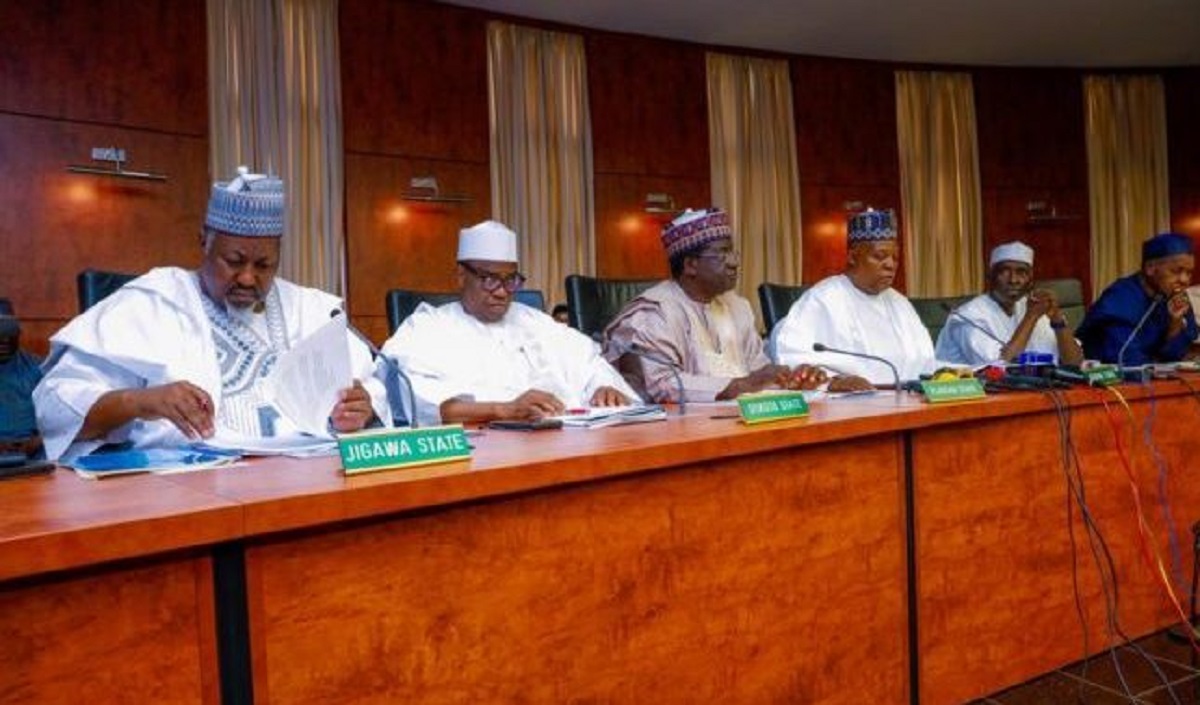The crisis is brewing between the National Assembly and All Progressives Congress (APC) governors over the retention of the direct primary for picking candidates by political parties in the amended Electoral Act.
According to the governors, the retention of direct mode amounted to the usurpation of the function of political parties.
The Peoples Democratic Party (PDP) aligned with the governors, saying that direct primary cannot be imposed on parties.
The dust thrown up by the adoption of direct for the 2023 general elections in the Electoral Act Amendment Bill that was passed yesterday by the National Assembly may take a longer time to settle.
On Tuesday, November 9, the Senate passed the Conference Committee Report on the Electoral Act Amendment Bill, following its consideration by both chambers of the National Assembly.
The National Assembly also gave its nod to the electronic transmission of election results.
Although, the Upper Chamber initially rooted for indirect primary, it made a u-turn and supported the direct mode.
Also, the House of Representatives rebuffed pressure by the governors to jettison the direct primary.
Sources said President Muhammadu Buhari is likely to assent to the bill within a week.
A meeting by the All Progressives Congress (APC), its governors, senators and House of Representatives members ended in deadlock over the retention of the clause in the amended Electoral Act.
Feeling uncomfortable with the development, the ruling party sought for the retention of indirect primaries, but the lawmakers were not persuaded by the APC plea.
They said they have approved direct primaries and decided to leave President Muhammadu Buhari to either accept or reject direct primaries.
The meeting which began at about 5.30 pm ended at about 7 pm with the legislators not yielding ground.
The session at the Presidential Villa had in attendance Vice President Yemi Osinbajo; the Chairman of the Caretaker Committee of the party, Governor Mai Mala Buni of Yobe State, the Chief of Staff to the President, Prof. Ibrahim Gambari, and about 80 per cent of members from the Senate and the House of Representatives.
Also at the meeting were Senate President Ahmad Lawan, House of Representatives Speaker Femi Gbajabiamila, some principal officers of the two chambers of the National Assembly and some governors, including Nigeria Governors Forum(NGF) Chairman Governor Kayode Fayemi (Ekiti); Atiku Bagudu (Kebbi); Yahaya Bello (Kogi) and Inuwa Yahaya (Gombe).
A source at the meeting said Buni set the tone for the session by telling the lawmakers that the party was opposed to direct primaries because of huge logistics and cost.
Politics Update: INEC declares Soludo winner of Anambra governorship poll
The source said: “Buni said direct primaries will be too cumbersome for the Independent National Electoral Commission (INEC) to monitor. He also claimed that the party does not have money for such an exercise nationwide.
“He said direct primaries may lead to crisis in the party and it may erode the peace and reconciliation APC has achieved. It asked Senators and Representatives to look into a possible restoration of indirect primaries.”
It was, however, learnt that Gbajabiamila said the introduction of direct primaries was “in the larger interest of the party to make democracy participatory.”
A ranking member of the House said: “Our Speaker claimed that the President mandated APC leaders to grow democracy from the grassroots and that was why the National Assembly introduced direct primaries. He said APC members will feel free to elect their representatives for elective posts.
“Gbajabiamila said indirect primaries have not been producing people’s candidates for elections because of imposition.
“The Speaker said with indirect primaries, about 20 per cent of lawmakers used to return to the National Assembly. He said some of those who performed in the National Assembly couldn’t return because of extraneous factors.”
Senate Leader Abdullahi Yahaya also gave some background behind the choice of direct primaries.
He said: “Direct primaries will strengthen democracy.”
Bagudu, who said most party leaders, governors and members do not support direct primaries, advised the lawmakers to “reconsider your position on direct primaries.”
It was learnt that the session became an issue between the governors and the lawmakers.
In order to break the tie, Prof Osinbajo suggested conceding the “right of first refusal” to senators and House members as a middle approach solution to the stalemate.
But, the lawmakers rejected the option and insisted on direct primaries.
A principal officer said: “We told them we have amended the Electoral Act, the party and the governors should allow President Muhammadu Buhari to decide whether or not to assent it.
“We won’t re-amend it. We want our democracy to move forward. Enough of dictatorial tendency. No more imposition of our candidates by some party leaders and governors.”
When contacted, a governor said: “I think the Senators and members of the House were not realistic at the session. They cannot afford the cost and the rigours of going through direct primaries.”
“They are now complaining of imposition. Did you ask them how they got to the National Assembly? Were they not products of party leaders and governors.
“With direct primaries, do they have the resources to match that of the governors? At the meeting, some of us just kept quiet and looking at them. Let us see how far they can go with direct primaries. I can tell you that most Senators and Representatives will not get a second term or another ticket under direct primaries because they are not in touch with their constituents who will vote.”
